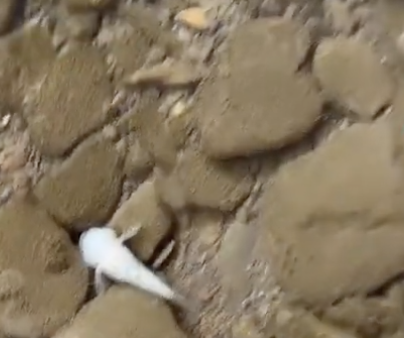PRESS CONFERENCE: Per the Ohio Dept. of Natural Resources, “There is a plume of chemicals in the Ohio River, moving downstream near Huntington, West Virginia, right now”! pic.twitter.com/bZBK2LjEv7
— SOS-UK-Report (@sosReports) February 15, 2023
Ohio Governor Mike DeWine has slammed the state’s Public Utilities Commission after it claimed the toxic train that derailed in Ohio was not considered hazardous, despite the accident devastating the local area.
— Sidney Powell 🇺🇸 🗽⚖️🚜🇺🇸 (@SidneyPowell1) February 15, 2023
Residents of East Palestine, Ohio, fled the area after around 50 cars, including ten carrying hazardous materials, derailed in a fiery crash at 9pm on Friday, February 3. Despite the evacuation order being lifted last week, locals have since questioned authorities’ assurances that the area is safe as returning residents find dead fish and animals along with a foul smell likened to nail polish remover and burning tires.
East Palestine, Ohio.
— Citizen Free Press (@CitizenFreePres) February 13, 2023
Dead fish everywhere. Thousands of residents demanding testing. Cities hours away scrambling to reassure public the water is safe. Potentially 5 million people along the Ohio River affected. MSM downplaying the situation.pic.twitter.com/CFb2Q0MeTx
More dead fish Palestine OH. from train derailment chemical spill@teamanons 👈@Qwo17 👈
— chefboyrdave2.1 aka daveK (@DavidKnestrick) February 14, 2023
🦅 🇺🇸 💪 🔥 😉✌️ pic.twitter.com/hmL5hhSI5Z
Check my timeline. I have posted water quality reporting resources and also recommended intervals. And I’m laser focussed on getting the EPA to release the test results post controlled blow. It’s been 10 days since they updated the water data https://t.co/UOnDPwHChA pic.twitter.com/wnThOYdh9B
— Frank Castiglione (@CastiglioneFrnk) February 14, 2023
According to the Environmental Protection Agency (EPA), the main chemicals involved in the derailment incident were vinyl chloride, ethylhexyl acrylate, ethylene glycol monobutyl ether, and butyl acrylate (pdf).
Vinyl chloride is a toxic, colorless, and flammable gas primarily used to make the polyvinyl chloride hard plastic resin in plastic products such as pipes, wire and cable coatings, and packaging materials.
Vinyl chloride is associated with an increased risk of liver cancer and other cancers, such as brain and lung cancers, according to the federal government’s National Cancer Institute.
